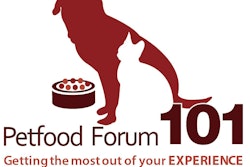E-commerce is irreversibly transforming pet product retailing and recasting retail channel shares. It’s easy to assume the rise of e-commerce spells nothing but doom for traditional street-side businesses. Nevertheless, it can’t be denied that e-commerce on a grander scale is proving to be beneficial to the pet industry overall, reports market research firm Packaged Facts in the new report U.S. Pet Market Focus: Pet Specialty Channel and Internet Shoppers.
“Online shopping has not just been cannibalizing existing business from brick-and-mortar channels. Instead, for the past few years, the Internet has been disproportionately responsible for helping to keep the U.S. pet industry on a healthy growth track,” says David Sprinkle, research director for Packaged Facts.
In U.S. Pet Market Focus: Pet Specialty Channel and Internet Shoppers, Packaged Facts estimates online sales (defined as any sales that originate online) of pet products at $11 billion in 2019, or 20% of the market, ramping up from $9.5 billion in 2018 and $3.2 billion in 2015. E-commerce success with pet products, primarily from Chewy and Amazon, has permanently made the pet products market “omnichannel,” a transformation sealed by current online strategies of brick-and-mortar based retailers (including PetSmart and Walmart) and of specialty brand and product marketers. Packaged Facts projects the Internet share of the pet products market to reach 23% in 2023.
Among pet-owning households buying pet products online, estimated average annual spending over the Internet on these products will be approximately $744 in 2019—nearly equating to the $771 in average annual spending on pet products among U.S. pet-owning households overall.
For brick-and-mortar businesses competing against e-commerce in the omnichannel age has resulted in increased focus on pet care services. Notably, PetSmart and Petco have increased their emphasis on veterinary services a non-medical petcare services (particularly boarding and grooming), whether located in their flagship stores or as separate operations. Veterinary services inside pet superstores, such as those offered by Banfield in PetSmart stores, attract a sizable share of U.S. pet owners. PetIQ, a manufacturer and distributor of OTC flea/tick medications and prescription pet medications, has entered a leasing agreement with Walmart to place VetIQ veterinary clinics in Walmart stores. Further, it’s been reported that Walmart is also venturing deeper into vet services though a walk-in clinic partnership with Essentials PetCare.
The non-medical petcare services business remains a mostly local or regional one, comprising thousands of independent providers. In addition, the U.S. pet industry is tracking trends on the human side with an invasion of petcare service apps, following an Internet-based model similar to that of Uber or Airbnb. During the past few years, well-funded start-ups have begun connecting pet owners with independent petcare professionals at the local level, and with services including pet walking and sitting and in-home “boarding.” PetSmart, Petco, and smaller pet specialty retailers are also making significant inroads into this market.
“A robust suite of petcare services is essential to many pet specialty retailers as e-commerce carves away product sales and pet specialty-type products are increasingly available at mass,” says Sprinkle.
About the report
With a focus on dog or cat owners, U.S. Pet Market Focus: Pet Specialty Channel and Internet Shoppers covers pet-owning, demographic, and cross-shopping patterns for U.S. pet product shoppers in the following retail sectors:
- PetSmart and Petco as the nationally established pet superstore chains
- other pet specialty chains and stores, including regional pet chains as well as traditional local/independent pet stores
- the farm supply store channel, particularly Tractor Supply Co.
- the Internet, particularly Chewy and Amazon
Find additional information about U.S. Pet Market Focus: Pet Specialty Channel and Internet Shoppers, including purchase options, the abstract, table of contents, and related reports at Packaged Facts’ website: https://www.packagedfacts.com/













